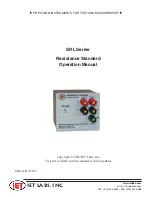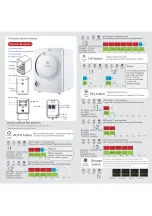
2 - SAFETY INFORMATION
2-8
Noise Level Safety
There are many variables that affect the sound level range,
including machine configuration, condition and maintenance
level of the machine, ground surface, operating environmental,
duty cycles, ambient noise, and attachments.
Exposure to loud noise can cause impairment or loss of
hearing.
Always wear hearing protection. Wear a suitable hearing
protective device such as earmuffs or earplugs to protect
against objectionable or uncomfortable loud noises.
Chemical Safety and the Environment
Soil, air, and water are vital factors of agriculture and life in
general. When legislation does not yet rule the treatment of some
of the substances which are required by advanced technology,
sound judgment should govern the use and disposal of products
of a chemical and petrochemical nature.
NOTICE:
The following are recommendations which may be of
assistance:
• Become acquainted with and ensure that you understand
the relative legislation applicable to your country.
• Where no legislation exists, obtain information from suppliers
of oils, filters, batteries, fuels, antifreeze, cleaning agents,
etc., with regard to their effect on man and nature and how
to safely store, use and dispose of these substances.
• Agricultural consultants will, in many cases, be able to help
you as well.
Helpful Hints
• Avoid filling tanks using cans which may cause considerable
spillage.
• In general, avoid skin contact with all fuels, oils, acids, sol
-
vents, etc. Most of them contain substances which may be
harmful to your health.
• Modern oils contain additives. Do not burn contaminated
fuels and or waste oils in ordinary heating systems.
• Avoid spillage when draining off used gearbox and hydraulic
oils, etc. Do not mix drained fluids with lubricants. Store
drained fluids safely until they can be disposed of properly
to comply with local legislation and available resources.
• Repair any leaks or defects in the hydraulic system imme
-
diately.
• Do not increase the pressure in a pressurized circuit as this
may lead to a component failure.
• Protect hoses during welding as penetrating weld splatter
may burn a hole or weaken them, allowing the loss of hy
-
draulic fluid.
Handle Chemical Products Safely
M
SDS
Direct exposure to hazardous chemicals can cause serious
injury. Potentially hazardous chemicals used with Kwik-Till
equipment include such items as lubricants, fluids, paints,
and adhesives.
A Material Safety Data Sheet (MSDS) provides specific details
on chemical products: physical and health hazards, safety
procedures, and emergency response techniques.
Check the MSDS before you start any job using a hazardous
chemical. That way you will know exactly what the risks are
and how to do the job safely. Then follow procedures and
recommended equipment.
(See your Kwik-Till dealer for MSDS’s on chemical products
used with Kwik-Till equipment.)
Содержание Kwik-Till HSD2500
Страница 2: ......
Страница 10: ...1 4 1 GENERAL INFORMATION This Page Is Intentionally Left Blank...
Страница 31: ...2 SAFETY INFORMATION 2 21 Fig 2 10 Warning Decal P N 90 44 0395 Fig 2 11 Safety Decal Location See Fig 2 10...
Страница 33: ...2 SAFETY INFORMATION 2 23 Fig 2 14 Warning Decal P N 90 44 0396 Fig 2 15 Safety Decal Location See Fig 2 14...
Страница 34: ...2 SAFETY INFORMATION 2 24 Fig 2 16 Warning Decal P N 90 44 0508 Fig 2 17 Safety Decal Location See Fig 2 16...
Страница 36: ...2 SAFETY INFORMATION 2 26 Fig 2 22 Danger Decal P N 90 44 0399 Fig 2 23 Safety Decal Location See Fig 2 22...
Страница 91: ...4 WORKING OPERATIONS 4 25 Fig 4 69 3 Rear Roller Deflector Locations A A...
Страница 92: ...4 WORKING OPERATIONS 4 26 This Page Is Intentionally Left Blank...
Страница 134: ...5 MAINTENANCE 5 42 This Page Is Intentionally Left Blank...
Страница 144: ...8 FORMS AND DECLARATIONS 8 2 This Page Is Intentionally Left Blank...
Страница 152: ...i 6...
Страница 153: ......
















































